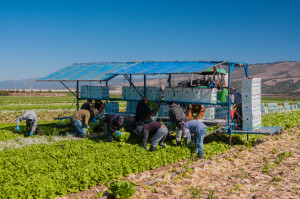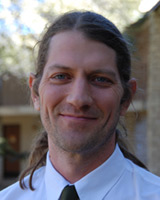Human labor is not a commodity. Recent articles on “Ferguson, One Year Out,” which I was reading alongside commentary on the Greek economic showdown, brought this central Marxist insight back to mind.

When I read economic and political journalism, I do so not with the insights and perspectives of an economist or a political scientist, but rather as a theologian who did enough rooting around in the Marxists and political economists in graduate school to shape my sense of what markets are, what good they serve, and what it looks like when they twist toward perverse ends. So my Marxist insight leads me to a question that, though generated by Marx, is primarily for me a theological question: is it possible to pay attention to economic systems without abstracting from the flesh and blood, desires and experiences, of actual human actors? Or simply put, can we exchange goods in a way that foregrounds, rather than suppresses, our humanity?
This is a Marxist question because it was Marx who first theorized that a system that aims to turn all human labor into a unit of trade will not be able to avoid alienating the human spirit that goes into that production. The streets of Ferguson boiled over last August because a white officer shot an unarmed black man; the attempts to address the unrest with new legislation about police practices and court processes have so far been unable to deal with the root of the problem: We generate wealth in a way that entails as its dialectical twin an army of poor laborers with little or no opportunity for a better life. And in Ferguson, as in the rest of America, this dialectical twin aligns disproportionally with African-Americans.
But as a friend reminded me in conversation this summer, it is also a theological insight, even though I hear Marx wagging his fulsome beard at me as I say this. (The trouble with Marx’s theology is that he imagined the word “God” to mean a kind of super-player (Über-economicus?) who controls and manipulates all creative exchange, and so would be a limit or simply a kaibosh on human freedom. A richer theology of divine provision and generative grace might have changed Marx’s mind about a good many things, and even addressed some of the problematic aspects of his theory. But I digress.) When I look at images of the streets of Ferguson, both last August when they were on fire and this August when they are quieter but still signs of complex segregation and barriers to opportunity, I see the humanity which God assumes in the Incarnation. When we allow lives (black lives, poor lives, abused or addicted lives, lives that sit on the periphery of economic growth) to remain invisible behind the systems of wealth that ironically depend on them, we are doing something utterly at odds with the way God acts in Christ. God did not put in place a system of trickle-down salvation; God took on a particular human life, with all the sadness and joy and anguish and hunger and love that life entails, and said, “this is the way, the truth, and the life.” The human birth of the divine Logos will always rebel against the sort of abstraction that implies that particular lives simply do not matter.
Human labor is not a commodity. Or it is not just a commodity. We work to make things we can sell (yes, including a curriculum for theological education). But the thing we make and sell does not replace the deep and complex human lives that lie in the shadows behind all the making and selling. When it does, then the poor and uneducated and unemployed and segregated classes have the most to lose, since commodification maximizes alienation on its margins. It may be years before a well-educated professor feels the affects of a system that values her only for what she produces; it will not take so long for the Jack-in-the-Box employee to come to this realization.
Where are particular lives invisible around you? Where is your own human spirit at risk of alienation? What would it mean to reflect God’s entrance into human particularity in these places?
 Anthony Baker joined the seminary faculty in 2004. He teaches classes in both historical theology (focusing on a figure, an era, or a school of thought) and constructive theology (the building of persuasive arguments about God and creation). He is the author of Diagonal Advance: Perfection in Christian Theology, as well as various articles in Modern Theology, Political Theology, The Journal of Anglican Studies, Anglican Theological Review, and other journals and collections.
Anthony Baker joined the seminary faculty in 2004. He teaches classes in both historical theology (focusing on a figure, an era, or a school of thought) and constructive theology (the building of persuasive arguments about God and creation). He is the author of Diagonal Advance: Perfection in Christian Theology, as well as various articles in Modern Theology, Political Theology, The Journal of Anglican Studies, Anglican Theological Review, and other journals and collections.

